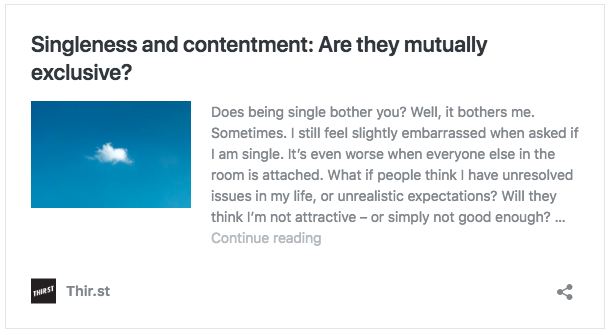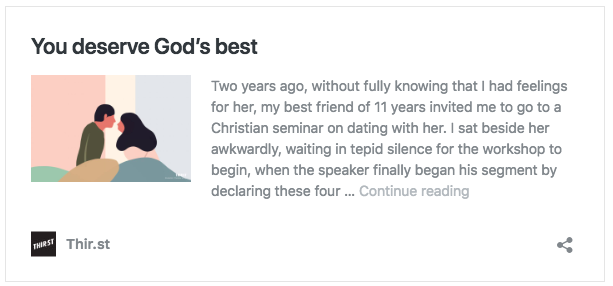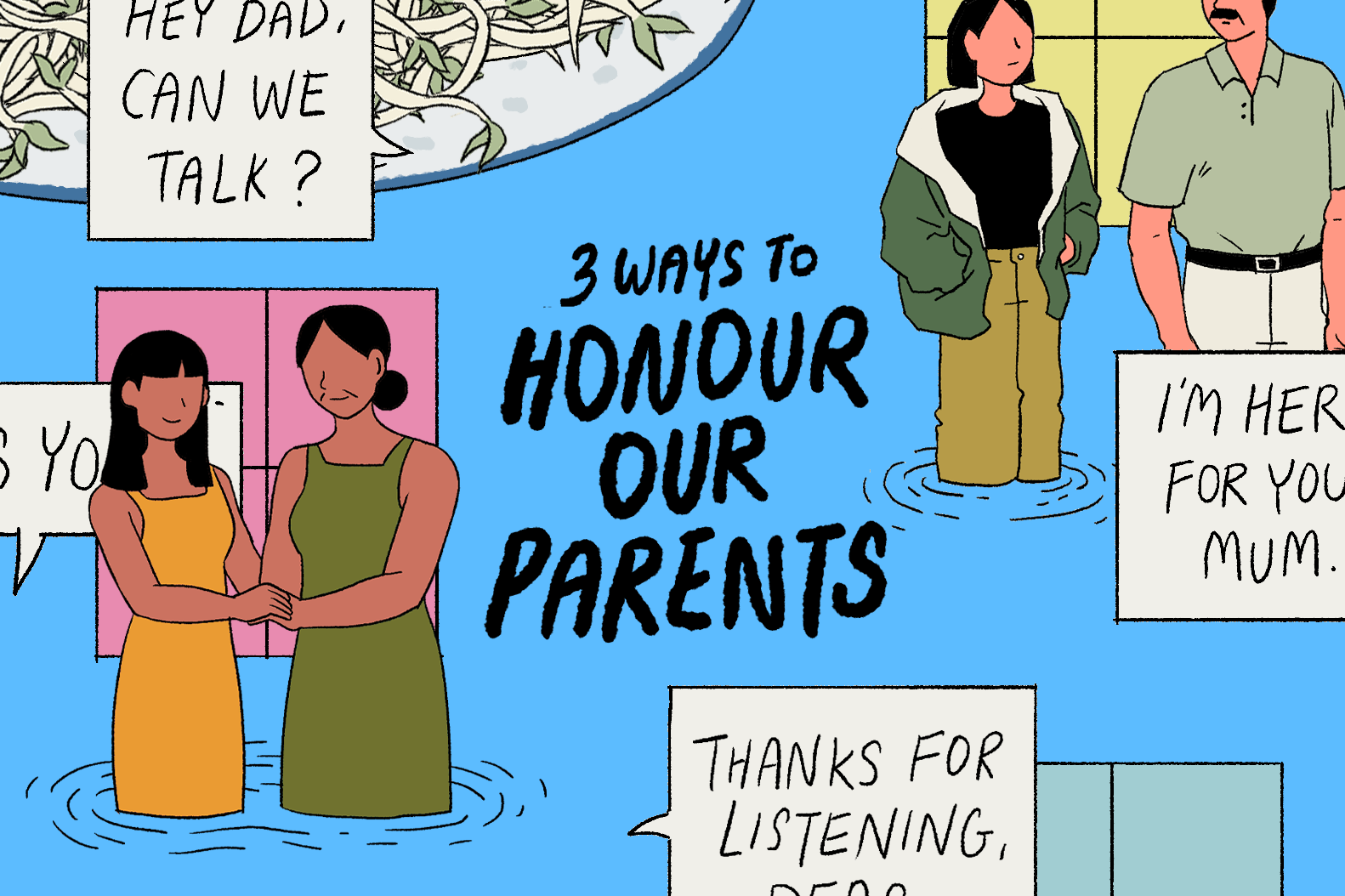I’m sure you’ve read an article on this site about singlehood before.
The struggle of not wanting to be single, the frustrations that come with waiting, learning how to be content with being single, learning that singleness is also a blessing from God – just as much as having a partner is.
Well, this one is going to be different. I want to talk about what happens when you’re already content with singleness but are not quite sure what to do in that space and what that means for potential relationships.
After all, that’s the position I currently find myself struggling to navigate in.

“But I say to the unmarried and to the widows: It is good for them they remain even as I am; but if they cannot exercise self-control, let them marry. For it is better to marry than to burn with passion.” (1 Corinthians 7:8-9)
An all too familiar verse for all singles.
It can be a source of comfort, knowing that we were indeed created as complete individuals in Christ – that it’s not God’s ultimate intention and design for all to get married.
But, like many things in life, it’s not all that black and white. People who are content with being single still have the option to change their mind and choose to be in a relationship. That’s perfectly fine
It just took me a while to really understand why.
I aligned singleness with strength and empowerment, whereas I viewed being in a relationship as weak and needy … this line of thinking is not only wrong, but also spiritually unhealthy.
“I want you to be free from anxieties. The unmarried man is anxious about the things of the Lord, how to please the Lord. But he who is married cares about the things of the world—how he may please his wife.” (1 Corinthians 7:32-33)
Paul continuously encouraged singlehood.
He saw it as a way of being able to devote your life more closely to God. This is a very empowering thought, but also potentially misleading.
Just because singleness is affirmed as strength, doesn’t necessarily make being in a relationship a sign of weakness.
In my heart, I personally wrestled with this misconception a lot: I aligned singleness with strength and empowerment, whereas I viewed being in a relationship as weak and needy.
I came to eventually learn that this line of thinking is not only wrong, but also spiritually unhealthy.
Part of the reason why I choose to remain single is that I felt that being in a relationship was like being held emotionally hostage by another person.
This is not Christ-like, even though Paul said it is better to marry than burn with passion, especially for those who cannot exercise self-control.
When I read this, “control” jumped out at me. Having control is something I hold onto greatly in my life. I understood control as a sense of independence and empowerment that comes with being single.
Which meant that on the flip-side, I saw relationships as a result of being overcome with emotion: Infatuation, love, passion – whatever you call those butterflies in your stomach or hearts in your eyes when you see a special someone walk past you.
Just because singleness is affirmed as strength, doesn’t necessarily make being in a relationship a sign of weakness.
To me, control in singleness meant not being held emotionally accountable to another person.
But Paul never said anything along those lines, and that’s not how Christ called us to live as singles. A life with Christ means a relationship in which you allow Him to enter into the very center of your being.
This bond we have with Christ is reflected in our covenantal bond with our spouse. We see this in Ephesians 5:25, and it refutes my previous understanding of being in a relationship as weakness.
Choosing to include another person in your life as a partner, choosing to work with them, choosing to forgive them, choosing to prioritise them over your own wants and needs is far from being weak and needy.
“Husbands, love your wives, just as Christ also loved the church and gave Himself for her.” (Ephesians 5:25)
The intimate relationship that Christ demands to have with us also refutes my understanding of singleness.
In singleness, I sought independence and it was a status I was greatly proud of having. But that’s exactly the danger of being too comfortable with singlehood – when you’ve reached a point of pride.
I had enthroned my own strength in my heart rather than Christ. Being strong, independent, and in control of my emotions became conflated with a stubborn reluctance towards vulnerability, sharing my problems with others, and being hardened to receiving love from others.
I was so busy boasting about how put together I was as a single woman, that my life was reflecting my successes rather than God’s.

“But God forbid that I should boast except in the cross of our Lord Jesus Christ, by whom the world has been crucified to me, and I to the world.” (Galatians 6:14)
My earthly relationship status doesn’t define my strength. My strength comes from my heavenly relationship with God. I shouldn’t cling onto independence, but cling onto a deeper dependence on Christ instead.
Singleness is great because to some, being single is more effective in bringing themselves closer to God. But for others, a covenantal partnership is more suitable, because it helps magnify God more in their life.
Your relationship status is not an either-or option, neither is being single or being in a relationship a zero-sum game. One isn’t better than the other, and one shouldn’t be prized over the other.
In the end, what matters is that God is enthroned in our hearts.











